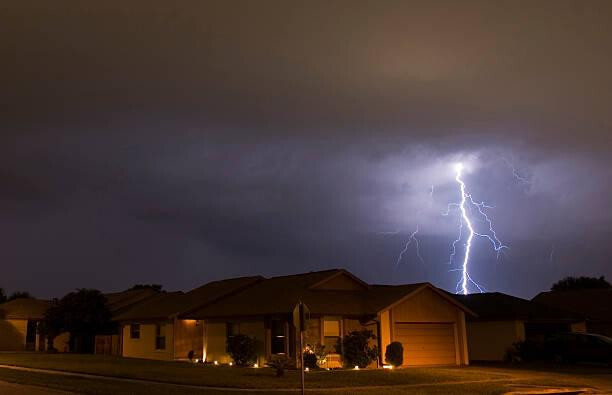- 1-905-452-8193
- Contact Us
- Member Login
- Get Listed Today
- 220,911 members

According to a reputable emergency electrician Brisbane, the danger of electrical accidents increases significantly during a storm. Inclement weather can cause trees to fall onto power lines, creating sparks and even fires that can be hazardous to people nearby. In addition, lightning strikes can cause power surges and outages that can damage electronics and other appliances in your home or business.
Lightning Strikes
Lightning strikes are one of the most dangerous electrical hazards associated with storms, as they have the potential to disrupt power supplies and cause significant property damage if they hit homes or businesses. Lightning typically travels through wires and metal piping, so it’s important to unplug electronics and appliances or turn them off before a storm hits. Additionally, lightning can cause power outages that may last for hours or longer.
Power Surges
Power surges occur when the voltage travelling through electrical wires briefly spikes above normal levels, damaging appliances and electronic devices in the process. These surges are typically caused by lightning strikes but can also be caused by broken power lines. To protect your home from a power surge you should invest in surge protection strips that will shut down the flow of electricity if an abnormally high voltage is detected.
Fires
Sparks from downed power lines or lightning strikes can cause fires if they come into contact with flammable materials. To protect your home from this hazard you should make sure trees and other tall objects are not near power lines, as falling branches can cause sparks that could potentially ignite a fire. Additionally, it’s important to stay away from downed power lines and report them immediately to authorities.
Electrical accidents are one of the most common incidents during inclement weather. They can be dangerous and costly, so it’s important to know how to protect yourself and your property from potential risks.
Make use of the following list to stay safe from electrical accidents during bad weather.
Unplug all electronics and appliances
Never leave them plugged in when a storm is approaching as this could lead to power surges and damaged equipment.
Stay away from windows
Keep yourself away from windows whenever possible as they can easily become broken by flying debris during a storm with high winds.
Install surge protectors
Installing surge protectors on your home's electrical outlets will help to protect all of your electronic devices from power surges that could occur during the storm.
Avoid tall objects
Tall objects, such as trees and buildings, often attract lightning strikes during a storm. Keeping yourself away from these objects can help to reduce the risk of being electrocuted.
Don’t touch any electrical cords
Always be careful when handling any electrical cords or wires that may have become wet due to rain or water damage.
Pay attention to weather warnings
Keep up-to-date with the latest weather warnings for your area so you know when it is safest to stay indoors and away from potential hazards.
Stay inside
If a storm is severe enough, it is usually best to stay inside until it passes to avoid any potential hazards.
Wear rubber-soled shoes
Wearing rubber-soled shoes will help to prevent any electric shocks if you do come into contact with an exposed wire or other electrical equipment.
Have battery-powered flashlights ready
Having battery-powered flashlights in case of a power failure can be very useful during storms as they provide light while reducing the risk of electrocution.
Never stand under metal objects
Metal objects, such as lampposts, should never be stood under during a storm as they can easily become live wires and electrocute the person standing underneath them.
Don’t drive in flooded areas
Driving through flooded areas is never recommended during a storm as there could be hidden electrical cables that may not be visible at first glance.
Stay away from power lines
Power lines are often damaged or brought down by strong winds during storms, so it is important to stay well away from these at all times to avoid any potential shocks or fires.
By following these useful tips to avoid electrical accidents during a storm, you can make sure to keep both your property and yourself safe. Remember: prevention is key! Stay informed and stay safe this storm season.
